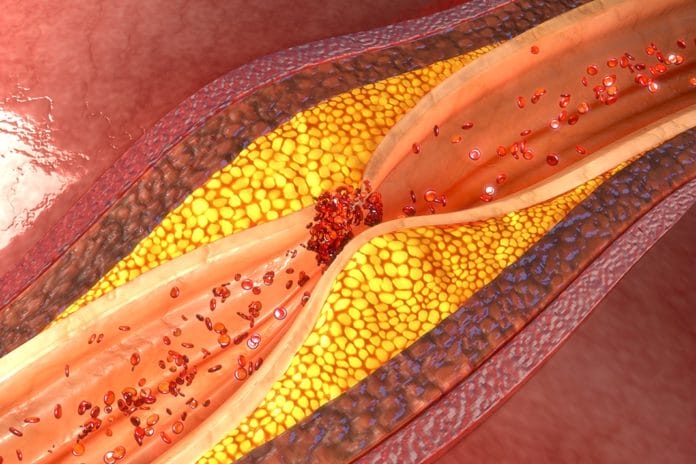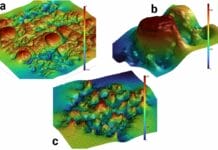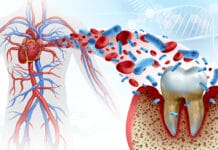According to research presented at the EuroPerio9 conference, coronary artery disease and periodontal disease share a mutual epidemiological relationship. The conference, which ran from June 20-23 in Amsterdam, was held by the European Federation of Periodontology. The non-profit organization focuses on sharing and promoting research related to periodontal health. Thirty individual national scientific societies of periodontology make up the European Federation of Periodontology.
The lead researcher, Dr. Arne S Schäfer, teaches at the Charité University Medicine in Berlin, Germany in the department of periodontology and synoptic dentistry. During the event, he revealed that both diseases share a genetic basis involving the VAMP8 function. Although previous research has demonstrated an association between coronary artery disease and periodontal disease due to risk factors such as diabetes, there weren’t many that compared their genetic material.
Coronary artery disease is a condition where the arteries narrow and harden due to plaque buildup. Patients with the disease may also experience angina or dyspnea symptoms. It can lead to heart attacks and other serious health risks due to blocked coronary arteries. Coronary artery disease is the leading cause of death among both men and women in the United States and in Europe according to the American Heart Association. About 500,000 Americans die from heart attacks caused by coronary artery disease, and approximately 12,800,000 Americans are diagnosed with the disease.
Periodontal disease is characterized by infection of gingival tissue and supporting structures. Gingivitis is one of the earliest signs of periodontal disease. When left untreated, it can destroy the bone and supporting structures of teeth, which can lead to tooth loss and other serious dental issues. Statistics from the Center for Disease Control revealed that almost half of adults aged 30 years and older (or 47.2%) have some form of periodontal disease.
Dr. Schäfer decided to conduct the decade-long study to further explore the joint genetic basis of periodontal disease and coronary artery disease. The researchers originally hypothesized there would be several molecular pathways which would contribute to both diseases. To test their theory, they examined every common variant in the DNA sequence and documented when the variant was more common in both periodontitis cases and coronary artery disease, compared to the control group.
The discovery stage of the study used a German sample with aggressive periodontitis and the CARDIoGRAMplusC4D CAD meta-analysis dataset. Aggressive periodontitis was in 717 cases vs. 4,213 control groups, while the latter included 60,801 cases and 123,504 controls. The researchers were able to generalize their findings by replicating it in numerous independent samples of genome-wide association study (GWAS) meta-analysis dataset with cases and controls conducted on patients with periodontitis in the United States, Netherlands, Germany, and Austria.
At the end of the study, scientists discovered a variant in the promoter region of the gene VAMP8 was more frequent in patients with periodontitis and coronary artery disease than the control group. Promoters are in charge of regulating the activity of a gene in response to other stimuli. VAMP8 specifically acts as a doorway that can bring molecules and other substances in and out of the cells. The gene was strongly expressed in the gingiva and epidermis of cellular interfaces in the barrier organs of the gastrointestinal tract.
Based on their extensive research, Dr. Schäfer wants patients to understand there are more risk factors than lifestyle choices when it comes to developing gum disease and coronary artery disease. Some people have a genetic predisposition due to their VAMP8 function which may increase their risk of being diagnosed with both diseases. He also asserts periodontitis does not always increase the likelihood patients will develop coronary artery disease or vice versa.
SEE ALSO: What Patients Need to Know about Periodontitis Links to Diabetes and Heart Disease
DON’T MISS: HIV Update for Dental Hygienists










